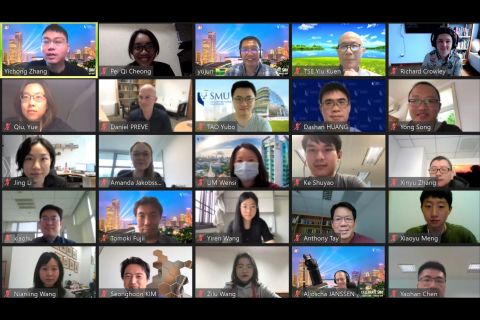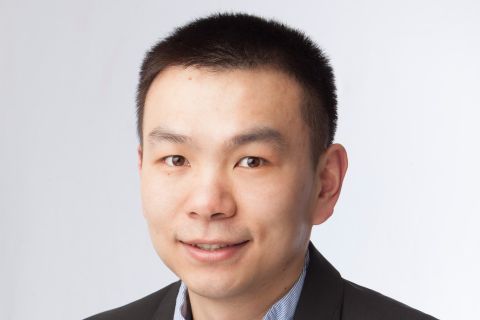
By Michelle Lee Twan Gee
SMU Office of Research & Tech Transfer – Despite Singapore’s highly subsidised university education and the government’s vigorous attempts to level the educational playing field in every way, there still exists a social economic class divide in the local universities. This divide is described in a 2018 OECD report, which found that Singapore was among countries with significant socioeconomic status (SES) gaps in higher educational attainment, despite having universal access to education.
What is the reason for this? Could poorer students face hurdles to academic success other than financial ones?
Assistant Professor of Psychology at Singapore Management University Jacinth Tan and her Co-Investigator at the Nanyang Technological University Professor Chin Hong Tan hope to find answers through a research project that seeks to answer those questions.
Expounds Professor Tan: “We all know that university environments are highly competitive and stressful. However, the amount and sources of stress that students have to contend with may not be equal. In particular, students from lower SES backgrounds, beyond financial constraints, often face a range of other social and psychological stresses as well, such as family conflict, unstable close relationships, low sense of personal control, fear of not measuring up to others or facing discrimination from others.
“When experienced daily, these stresses can accumulate to become chronic stress. My research aims to examine whether socioeconomic status differences in cumulative daily stresses among university students affect psychological well-being, academic persistence and academic outcomes.”
Under the microscope: Students’ daily struggle to overcome emotional baggage
Singapore is the perfect “petri dish” to examine this question. Education at all levels – including tertiary level – in the country is highly subsidised. This means two things. First, compared to countries like the USA, the economic barrier to higher education is lower in Singapore, and therefore the university student sample in Singapore is relativelymore socioeconomically diverse.
Second, Singapore’s highly subsided education system allows the team to examine the role of other social-psychological factors, beyond access to higher education, that may explain SES achievement gaps.
Stresses Professor Tan, “I believe it is important to examine whether simply reducing economic barriers to higher education is enough to reduce socioeconomic status achievement gaps.”
Although there are existing research on how lower socioeconomic status affects scholastic achievements, the focus has been on how being lower in SES creates identity threats and anxiety that impairs academic performance. No research, however, has sought to examine the effects of a broader range of stresses, especially when they become cumulative.
Many low SES undergraduates have to cope with multiple sources of stress, such as family conflict, juggling studies, part-time work and caregiving concurrently, and fearing disadvantage in school due to their backgrounds. The research team is particularly interested in studying the cumulative effects of this broad range of daily stresses among students of different socioeconomic status backgrounds, and how this baggage of persistent stresses may affect their psychological well-being and ability to handle to academic stresses.
The proposed research will use an experience sampling method (ESM) to assess students’ daily stresses as they naturally occur, as well as their daily psychological well-being. Similar to the ‘daily diary approach’, respondents will be asked to record stressful events that occur and how stressed they felt during those events, over a seven-day period. This is in contrast to previous research that are primarily lab-based experiments that provide only a snapshot of stress effects in a highly artificial setting, rather than capture actual stress experienced every day.
Explains Professor Tan, “Using ESM allows us to capture naturally occurring stress experiences daily that are less contrived, allowing us to examine its contribution to socioeconomic status gaps in students’ psychological well-being and school performance in a more realistic and ecologically valid way.”
It’s not just about resources
Overall, the research hopes to generate new knowledge on disparities in the daily stress experience and psychological well-being between lower and higher SES students, and their spillover effects on academic performance and persistence.
The broader implication of the study is that educational policies must actively address psychological challenges along with resource challenges to better mitigate socioeconomic gaps in higher educational attainment.
Articulates Professor Tan: “It is important for policymakers, educational institutions and educators to pay closer attention to the complex challenges that low socioeconomic status students face as they strive for social mobility.
“Down the road, my broader goal is to develop social-psychological interventions that would help lower socioeconomic status students to navigate challenges that they face, thereby mitigating gaps in psychological well-being and achievement.”
Back to Research@SMU Feb 2021 Issue
See More News
Want to see more of SMU Research?
Sign up for Research@SMU e-newslettter to know more about our research and research-related events!
If you would like to remove yourself from all our mailing list, please visit https://eservices.smu.edu.sg/internet/DNC/Default.aspx

